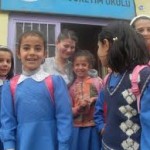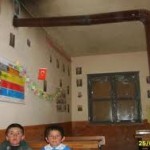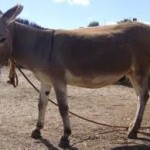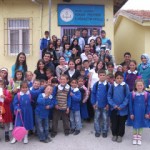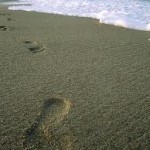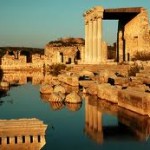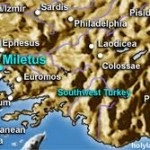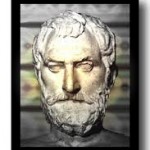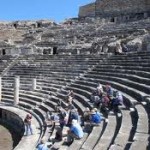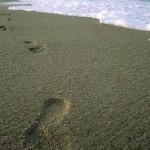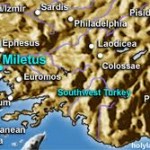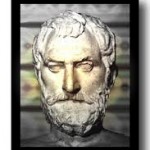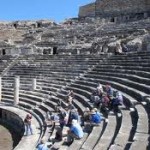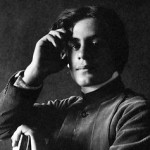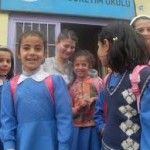 Az çok toplumsal farkındalığı olan biri olsam da konu Uluslararası Bakalorya Diploma Programı gibi öğrenmenin bütüncül olduğu farklı hedefleri olan bir eğitim programını geleneksel bir özel okula uyarlamak söz konusu olduğunda şunun farkına vardım ki ; pedagojik liderlik ve örnek oluşturabilme büyük önem taşıyor. Çünkü konu bir eğitim programını alıp getirmek değil, küçük ve kararlı adımlarla kurumsal kültürü geliştirmek. Meslek hayatımda ilk IB öğrenci guruplarından birisiyle gerçekleşitrdiğimiz bir köy okulu yenileme çalışmamızdan sözetmek istiyorum buradan.
Az çok toplumsal farkındalığı olan biri olsam da konu Uluslararası Bakalorya Diploma Programı gibi öğrenmenin bütüncül olduğu farklı hedefleri olan bir eğitim programını geleneksel bir özel okula uyarlamak söz konusu olduğunda şunun farkına vardım ki ; pedagojik liderlik ve örnek oluşturabilme büyük önem taşıyor. Çünkü konu bir eğitim programını alıp getirmek değil, küçük ve kararlı adımlarla kurumsal kültürü geliştirmek. Meslek hayatımda ilk IB öğrenci guruplarından birisiyle gerçekleşitrdiğimiz bir köy okulu yenileme çalışmamızdan sözetmek istiyorum buradan.
Yılın farklı zamanlarında yürüttüğümüz fon oluşturma etkinliklerinden, yani okul içinde kek, börek satarak elde ettiğimiz para, nerdeyse en son çıkan en ileri cep telefonunu satın alacak miktara ulaşmıştı. Gerçekten gereksinim içinde olan bir sağlık ocağı veya okula yardım etmek istiyorduk. Bu tür etkinliklerde, öğrencilerimin destek olacağı yeri bizzat gidip görmesi, gereksinimlerini yerinde tespit etmesine her zaman önem veririm. Bu sayede o zamanlar bizden destek talep etmiş bir kaç yeri gidip birlikte gördük ve aslında yardıma pek de ihtiyaçları olmadığını yerinde anlamıştık. Bizim hedeflediğimiz elimizdeki belirli parayla birlikte saptayacağımız bir yerin onarılması, boyanması veya birkaç gerekli ekipmanın alınması idi.
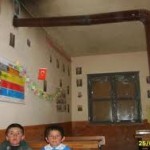 Bu arayışla yolumuz Ankara şehir merkezine yarım saat ya da bir saat uzaklıktaki “P..” adlı küçük bir köye düştü. Epey zamandır onarım görmemiş bir yoldan köye ulaştık ve sorarak okulu bulduk. Köyün okulundaki öğrenci sayısı yüz kişi kadardı, toplam iki öğretmenli ve şubeleri-sınıfları birleştirilmiş, tipik bir köy okulu. Üç tane sobayla ısınan bu mütevazi ve hayli bakımsız ilköğretim okulundaki köylü çocuklara daha ilk gittiğimiz gün hemen içimiz ısınmıştı. Okulu biz ilk ziyaret ettiğimizde karşımıza çıkan görünürdeki tek öğretmen, Erkan hoca yirmili yaşlarının sonunda, aynı zamanda okulun müdür vekili ve ilk 1-2-3 ‘lerin de sınıf öğretmeniydi. Kendisine niçin geldiğimizi ve ne yapmak istediğimizi kısaca anlattığımızda önce epey şaşırdı sonra çok büyük memnuniyetle karşıladı.
Bu arayışla yolumuz Ankara şehir merkezine yarım saat ya da bir saat uzaklıktaki “P..” adlı küçük bir köye düştü. Epey zamandır onarım görmemiş bir yoldan köye ulaştık ve sorarak okulu bulduk. Köyün okulundaki öğrenci sayısı yüz kişi kadardı, toplam iki öğretmenli ve şubeleri-sınıfları birleştirilmiş, tipik bir köy okulu. Üç tane sobayla ısınan bu mütevazi ve hayli bakımsız ilköğretim okulundaki köylü çocuklara daha ilk gittiğimiz gün hemen içimiz ısınmıştı. Okulu biz ilk ziyaret ettiğimizde karşımıza çıkan görünürdeki tek öğretmen, Erkan hoca yirmili yaşlarının sonunda, aynı zamanda okulun müdür vekili ve ilk 1-2-3 ‘lerin de sınıf öğretmeniydi. Kendisine niçin geldiğimizi ve ne yapmak istediğimizi kısaca anlattığımızda önce epey şaşırdı sonra çok büyük memnuniyetle karşıladı.
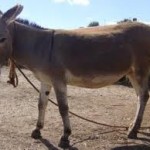 Yardım etmek için aradığımız yeri sonunda bulmuştuk. Yapılacak epey iş vardı. Bu küçük okulun çatısı akıyor, yağmur olukları çürümüş, dersliklerin içine uzun yıllardır hiç el değmemiş, dış cephesinde ise dökülmeler olmuş ve tuğlalar görünüyordu. Sobalar eskimiş bahçedeki iki basketbol potası paslanmıştı. Elimizdeki olanakları en verimli şekilde kullanarak burası için harekete geçtik. Önce yağmur oluklarını yenilettirmek gerekiyordu. Bunun için en çalışkan IB öğrencilerimden birinin babası sevgili Alper bey aynı zamanda Okul Aile Birliğinde olduğu için kendisinden destek istedik. Onun bizi kırmayacağını biliyorduk. Çeşitli inşaat onarım malzemeleri, boya, yağmur borusu, vs.nin öğrenci gelirlerinden karşılanarak hesaplı satın alımı, oralara nakliyesi ve bize destek olacak güvenilir birisini (Vahit usta) sağlamakta bize içtenlikle yardım etti.
Yardım etmek için aradığımız yeri sonunda bulmuştuk. Yapılacak epey iş vardı. Bu küçük okulun çatısı akıyor, yağmur olukları çürümüş, dersliklerin içine uzun yıllardır hiç el değmemiş, dış cephesinde ise dökülmeler olmuş ve tuğlalar görünüyordu. Sobalar eskimiş bahçedeki iki basketbol potası paslanmıştı. Elimizdeki olanakları en verimli şekilde kullanarak burası için harekete geçtik. Önce yağmur oluklarını yenilettirmek gerekiyordu. Bunun için en çalışkan IB öğrencilerimden birinin babası sevgili Alper bey aynı zamanda Okul Aile Birliğinde olduğu için kendisinden destek istedik. Onun bizi kırmayacağını biliyorduk. Çeşitli inşaat onarım malzemeleri, boya, yağmur borusu, vs.nin öğrenci gelirlerinden karşılanarak hesaplı satın alımı, oralara nakliyesi ve bize destek olacak güvenilir birisini (Vahit usta) sağlamakta bize içtenlikle yardım etti.
Onarımla ilgili işler çeşitli güçlüklerle ilerlerken ders yılının sonu da gelip geçmişti. Okulun son gününün hemen sonrasındaki hafta sonu, bir gurup istekli, ve gayretli IB öğrencisiyle buluştuk ve bir kez daha “P..” Köyü için yollara koyulduk. Ekip on bir öğrenci, ben dahil iki öğretmen, bir veli (Alper bey) ve bir inşaat ustasından oluşuyordu. Oraya varır varmaz hemen işe koyulduk
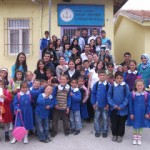 Artık hepimizin kimliği, sıfatı, evlerimizdeki rahatı geride kalmıştı. Kimimizin elinde duvarları kazımak için spatula, kiminde iri fırça rulosu, kiminde kir pas içinde taşımaya çalıştığı soba borusu hızla çalışmaya başladık. Duvarlarla birlikte yüzlerimiz, kollarımız ve hatta giysilerimiz de yavaş yavaş aynı renge bürünüyordu. Bu ekipte hiç birimizin boya badana konularında deneyimli olduğunu sanmıyorum. Hatta gençlerden çoğunun hayatında ilk kez köy ortamı yakından gördüğünü de söylemeliyim..
Artık hepimizin kimliği, sıfatı, evlerimizdeki rahatı geride kalmıştı. Kimimizin elinde duvarları kazımak için spatula, kiminde iri fırça rulosu, kiminde kir pas içinde taşımaya çalıştığı soba borusu hızla çalışmaya başladık. Duvarlarla birlikte yüzlerimiz, kollarımız ve hatta giysilerimiz de yavaş yavaş aynı renge bürünüyordu. Bu ekipte hiç birimizin boya badana konularında deneyimli olduğunu sanmıyorum. Hatta gençlerden çoğunun hayatında ilk kez köy ortamı yakından gördüğünü de söylemeliyim..
Gönülbirliğiyle, toz toprak ve boya içinde Haziran sıcağında ve buram buram inek kokuları ve eşek bağırtıları arasında neşeyle ve büyük mutlulukla bu köy ilköğretim okulunun içini dışını tertemiz yaptık.
“P..” köyü, tıpkı bazı kamu hizmetlerinde olduğu gibi cep telefonlarının da kapsama alanı dışında kalıvermiş. Akşam olduğunu hatta karanlığın çökmekte olduğunu bile zor farkettik. Öğrencilerimin anne-babaları ve okuldaki görevliler, bekleyenlerimiz gün boyu bizlere ulaşamamışlar ve doğal olarak da çok merak etmişler.
Dönüş yolunda ben gökte parıldayan yıldızları seyrederken artık cep telefonları vızır vızır çalışmaya başlamıştı. Gelirken ki parfüm kokuları, jöleli saçlar, moda giysilerden hiç eser kalmamıştı.
Ve şehir merkezine yaklaşırken öğrencilerimden şaşırtıcı ve samimi soru beni gerçekten mutlu etmişti: “Sencer hocam, önümüzdeki hafta sonu birlikte tekrar bu köye tekrar gidebilirmiyiz lütfen?”

